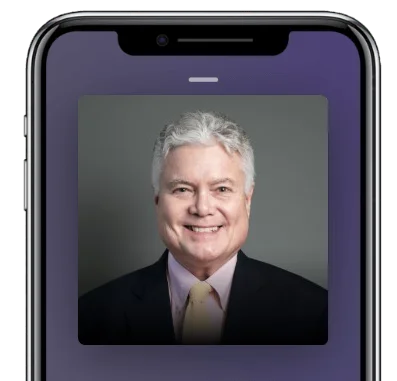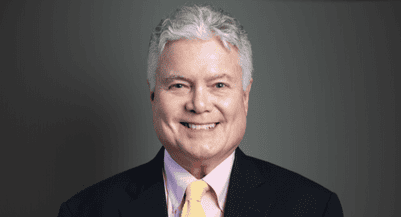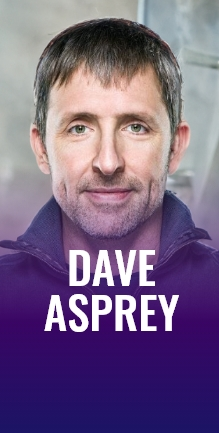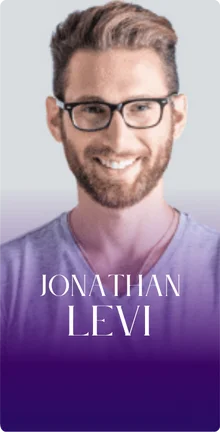In this Episode
- [00:30]Today on the show, Stephan is having Dr. Edward Hallowell, a board-certified child and adult psychiatrist and world authority on ADHD. He shares his expertise on ADHD and some approaches for parents and diagnosed persons.
- [02:37]According to Dr. Edward, ADHD is distinct from ADD; the former is compared to the engines of Ferrari and bicycle brains.
- [06:19]While discussing ADHD being labeled as a disorder, Stephan relates people with ADHD to spotters, whereas Dr. Edward refers to it as a Variable Attention Stimulus Trait.
- [10:17]How does “False Evidence Appearing Real” affect the imagination of a person with ADHD?
- [14:23]Dr. Edward recounts his encounter with an angel, which is one of the reasons he believes in God and angels.
- [20:02]Stephan talks about the Institutes for the Advancement of Human Potential, founded by Glenn Doman.
- [25:27]Dr. Edward explains an ADHD-diagnosed individual’s memory, which inspired Stephan to share his experience in Dave Asprey’s 40 Years of Zen.
- [31:37]To access free information from Dr. Edward, go to drhallowell.com and follow him on TikTok, Facebook, and Instagram.
Ned, it’s so great to have you on the show.
Thank you. I’ve already enjoyed it. We were chatting a little bit before the show began. You’re an extraordinary fellow, Stephan.
So are you. What an exciting and amazing episode this is going to be. I just know it because ADD and ADHD are these labels that end up bringing us down and not helping us when we could actually treat this as a superpower and work towards making the world a better place through these abilities that we’ve been given. I’d love, first of all, for our listener or viewer to differentiate ADHD and ADD.
I’d really like to get rid of both terms, but I’ll tell you just because they’re out there, what they each refer to. ADHD stands for Attention Deficit Hyperactivity Disorder. Technically, there is no such thing as ADD any longer. That’s what it was called originally when I learned about it in 1981, but then they struck the H in, so they got rid of ADD. ADHD has two subtypes. There’s ADHD primarily inattentive which means ADHD without the H, the old ADD. Then there’s ADHD combined type, which means ADHD with the “H” so you’re hyperactive as well as inattentive.
I don't treat disabilities. I help people unwrap their gifts because the gift won't unwrap itself. Share on XForget about it now that I’ve told you that. You need to know about it because that’s in the literature, it’s in magazines and the books, but in reality, it’s a terrible term. Those of us like me who have this condition do not suffer from a deficit of attention. It’s quite the opposite. We have an abundance of attention. I’ve got more attention than I know what to do with it and that’s the issue. How do you control it? We have this abundance of attention and we’re challenged to control it.
I sum that up with an analogy. I say it’s like we’ve got a Ferrari engine for a brain. We’ve got an incredibly powerful imagination. It’s like a runaway brain. We have a Ferrari engine for the brain with bicycle brakes. Our challenge is to learn how to control the power of our minds. While we’re growing up, if we get the right kind of guidance and help, that happens and we learn how to bring it under control over time.
If we don’t get the right kind of help, it can ruin people.
If we don’t get the right kind of help, which unfortunately most kids don’t get, if we get told to be quiet, sit still, and we get punished when we come up with new ideas then we develop the real disabilities which are shame, fear, and believing you’re defective and that you have a deficit disorder and so on and so forth.
That’s what ruins people. That’s the prison population, the addicted population, the unemployed, the marginalized, the multiply divorced, the people who are not able to make of themselves what their natural inborn talents would have them make. My mission is to, of course, change all that and have these wonderful souls become all that they can be.
We really are the game changers. We are the innovators. We are the people who see what other people don’t see. We are the dreamers, the visionary, the people who colonized this country, who would take a chance to cross the ocean with no idea what they’re going to find when they get here. We’re the ones who just put our faith in a dream and then go for it. We have an uncanny intuition. We’re driven by a desire to be free and a desire to create. We’re natural entrepreneurs. We are serial entrepreneurs.

We’re very mission-driven. It’s not so much the desire to get money as it is the desire to grow things, to make things happen. That often ends up in getting money, but it’s mainly this tremendous desire to grow, develop, and improve the world. Again, it begins with our imagination, which is copious and then we imagine how something could be and then we set about trying to make that happen. That’s usually the story of our lives.
Thoughts into things.
Yeah, and so to call it a disorder is a huge mistake. I think of it as a trait that if managed well, indeed does become a superpower. If it’s not managed right, it can cause big problems and that’s why it’s worth it to find out if you’ve got it or not.
Yeah, it’s a total disservice to people to put a label on them that’s a disorder. It really is. As I mentioned briefly before, a superpower. That Ferrari engine with bicycle brakes is a great way to convey that to somebody. Here’s another way of conveying this power—the superpower. I learned this from my friend Amy Africa. She’s a usability expert and she has brain researchers who work for her in brain researchers’ labs and so forth. She told me about what are called spotters.
Back in prehistoric times, when there were hunters and gatherers, there was a third type and they were called spotters and they kept the tribe alive. They’d be first to notice that the food supply, that the herd is on the move. They’d be first to notice that the neighboring tribe was sneaking up on them and was probably to murder them in their sleep. Without spotters, the tribe would be dead so we were evolutionarily selected for having spotters.
If you are a spotter, that is a much better label to apply to yourself or to let’s say a child that you have who has that label of ADHD than to put some sort of disorder label on it. You’ve heard about this before.
We’re very mission-driven. It’s not so much the desire to get money as it is the desire to grow things, to make things happen.
I came up with a new name for it myself. I love spotters, but I call it VAST, and that stands for Variable Attention Stimulus Trait. The two key things that vary in us are the search for simulation and the ability to focus. We have vast minds and vast capabilities so I like the acronym VAST, Variable Attention Stimulus Trait, but spotter is a good one, too.
Did you hear about that before that there were hunters, gatherers, and that third type?
No, I didn’t know about the third type. I certainly knew about hunters and gatherers. In fact, Thom Hartmann has a whole theory about ADD and he summarized it as hunters in a farmer’s world. He says we who have ADHD are hunters and we’re expected to behave like farmers, which we’re not.
Yes, but I do believe that this is a distinct type. I don’t feel so much like a hunter as a spotter. I am a machine or a supercomputer, being able to identify patterns—the pattern recognition, and then utilize or apply those patterns for my and other benefits. That, I think, is part of the abilities that somebody who’s labeled with ADHD has. Whether they’re labeled or not, if they have that Ferrari brain, that something I think is pretty prevalent, would you say that’s correct?
ADHD is a gift that does not unwrap itself.
Oh, yeah. What’s critical is that they get some encouragement instead of being told that they should change and become “more normal” and then they try to shut down their special powers instead. These things can go to waste if you don’t get permission or the forum or whatever word you want to use to let them develop. It’s a gift that does not unwrap itself.
I tell people all the time. I don’t treat disabilities. I help people unwrap their gifts, but the gift won’t unwrap itself. You do need a midwife or whatever you want to call it to help you unwrap your gift. That’s my mission. That’s what I’m trying to do.
Speaking of gifts, with wrapping, my wife Orion has a wonderful expression that says we all have gifts. They are given to us, but sometimes the bow is on the bottom.
That’s great.
With a child, let’s say a youngster in school, they’re probably trying to be made to conform. I’ll give you an example. One of my good friends has two daughters and one of these daughters has a label of ADHD but without the H. What would be the?
Primarily inattentive.

Here’s where it becomes a real problem for the regular world of her school experience. Anytime she needs to take a test, she gets very anxious and she’s unable to complete the test. Her anxiety level is so high that she can’t complete the test, so she will fail all tests. When she’s not put into that environment where it’s just really chill and relaxed like okay, show me how you do that math problem, she doesn’t think this is a test or anything, then she totally can nail it.
This is going to prevent her potentially from even going to college. How do you address a situation like that? Because a child, unless they’re in some special magnet school where the teachers are skilled at harnessing the superpower, the Ferrari brain with the bicycle brakes, is going to be facing a lot of difficulties.
She’s afflicted by one of the more common, if you want to call it disabilities, among kids who are very talented, namely fear. What she needs is some help from somebody who knows how to do this and that could be any number of people who can help her deal with fear. Fear is a state of mind. It is essentially a creation of your imagination.
ADHD is like having a brain that’s a Ferrari engine with bicycle brakes. People with ADHD have an incredibly powerful imagination. The challenge is how to control the power of the mind. Share on XYes, False Evidence Appearing Real.
Oh, that’s great. That’s wonderful. Her greatest asset—her imagination—becomes her worst enemy because just like what you said, turns evidence into an ominous presence, and then that shuts her down. She can’t perform on a test because she feels afraid of making mistakes and it can indeed be crippling. The good news is you can learn how to stare down fear. You can learn how to master the situation so you’re not afraid. As long as you’re at the mercy of fear, you will not perform anywhere near to what you could do.
All these kinds of dismissive statements happen in schools all over the country and all over the world. It’s why we lose some of our most gifted young people.
She needs an expert on false evidence appearing real. She needs an expert on fear. It’s a very conquerable problem, but it certainly shouldn’t be diagnosed as incompetence, which is what often happens, or that she doesn’t have the goods, or that she can’t do it. All these kinds of dismissive statements happen in schools all over the country and all over the world.
It’s why we lose some of our most gifted young people, not to mention adults. There are adults in every workplace. The most creative original people who are buried in some back closet because they can’t hand in a report on time, or show up for work on time, or they’re not good at kissing up to people and playing politics and so their talent goes wasted.
Your friend’s daughter just needs the right person, the right specialist. It doesn’t have to be a mental health specialist. Sometimes these people are athletic coaches or piano teachers. As you know, angels come in many disguises.
Yeah, so true. Did that happen to you? Did you have an angel show up for you when you were growing up or when you were in your early adulthood and facing challenges?
Let me tell you about the first angel and one of the many reasons I believe in angels and God. When I was six years old, I was growing up in a little town on Cape Cod called Chatham. I showed up for a first grade and this was small back then in 1955. Chatham now has become a metropolis. Back then it was a town of about 3000 or 4000 people and in the summer it became 30,000 because it was a beautiful town.
Anyway, there I am, showing up for first grade and I’m supposed to do what everyone is supposed to do in first grade, which is learning to read well. We’d be sitting at these little round tables taking turns reading, see, spot, run, run and come to my turn. I couldn’t do it. I didn’t get phonics. I couldn’t figure out how to sound out, match the letter A with the sound aha, the letter B with the sound ba. I didn’t get it. My brain didn’t compute. I couldn’t latch on to that.

Back then in the 1950s, in little towns like Chatham around the country, if you couldn’t learn to read, if you couldn’t get phonics, and you were trying September, October, and November, and you couldn’t get it, your diagnosis was that you were stupid. They didn’t have learning specialists so your diagnosis was pretty obvious, you’re stupid.
Your treatment plan was to try harder and they would induce you to try harder by punishing you, shaming you, humiliating you, dunce cap, standing in the corner. They actually spanked some kids to try to make them try harder. If that didn’t work, well, your diagnosis was you were very stupid and your future would be becoming a fisherman or something. There are a lot of fishermen in Chatham. In fact, it was sometimes called a drinking town with a fishing problem.
I was lucky. I had a first-grade teacher who knew there was more to little boys and girls who couldn’t learn to read than them being stupid.
I was lucky. I had a first-grade teacher who knew there was more to little boys and girls who couldn’t learn to read than them being stupid. She had no formal training and reading that I know of except she had been teaching first grade for about 75 years. She was an old pro. Her name was Mrs. Eldridge.
What would she do? During the reading period, she would come and sit down next to me. She was a very short lady, very plump. When she’d come over to sit down next to me, back then old ladies used to wear a lot of powder, so she sort of arrived like a sugar donut sprinkling powder for the two of us in this cloud for us to sit in.
That talcum was not good to inhale.
Exactly. She’d put her arm around me so I’d have her forearm around me and my little head and then this enormous cushion of a bosom that she’d hug me in next to. As I would stammer and stutter when it was my turn to read, none of the other kids would laugh at me because I had Mrs. Eldridge sitting next to me. That was my treatment plan. That was my IEP if you will, was Mrs. Eldridge’s arm.
It was amazing. It was all she could do, but it was all she needed to do. I looked forward to reading it. That’s pretty amazing to take a six-year-old little boy and have him look forward to publicly demonstrating his incompetence. I would stammer, I would stutter, I wouldn’t get it, but I didn’t mind because I had that arm around me. I looked forward to it.
The part of my brain that actually had talent with words was able to begin ever so slowly to inch its way out. By the end of the year, I was still the worst reader in the class, but I was the most enthusiastic student of reading and that’s the key. Instead of disconnecting from learning, I connected to it because of that arm. That arm has stayed around me ever since. Mrs. Eldridge’s arm has stayed around me ever since.
Calling ADHD a disorder is a huge mistake. It is a trait that if managed well can become a superpower. However, if not managed right, it can cause big problems. Share on XIt treated the basic learning disability, which is fear. It got rid of fear and replaced it with desire, with curiosity, with whatever natural abilities my brain has, that woman’s arm. To this day, I’m a painfully slow reader. I have dyslexia and it takes me forever to get through a book. My wife says I don’t know how you know anything. It takes me so long.
I majored in English at Harvard College while doing pre-med and graduated with high honors so I had to have some capacity to read in order to do that and then get through medical school. None of that would have happened had it not been for Mrs. Eldridge.
You asked me about my encounters with angels, well, that was the first one I remember vividly and her impact on my life. She was not a reading specialist in the formal sense of that term, but oh, my goodness, in the informal sense of that term, in the practical sense of that term, she was heaven sent. She was sent to me and to this day, I’m grateful to that short, old, plump lady with just an angel inside of her.
She clearly listened to her intuition and acted on it. Intuition, teaching from within. The angels and spiritual teachers whispering into our consciousness, that’s intuition. She knew that she needed to come and sit with you and put her arm around you in order to get you through that. That’s fabulous.
I’m curious, have you heard of an organization called IAHP, Institutes for the Advancement of Human Potential?
No, it sounds wonderful, though. What is it? Tell me about it.
An amazing organization founded by Glenn Doman, who’s now passed. He’s on the other side of the veil now. His daughter, who I think is maybe in her 70s now, Janet Doman, was on this podcast. I attended her amazing workshop on how to teach your baby not just how to read, but do the math, speak foreign languages, and become a speed learner, all these sorts of things.
It was incredible. It was a 40-hours online course, normally done in person, but because of the pandemic, it was switched to virtual. My wife and I attended it last year and so I’ve had Janet on my podcast. Orion, my wife, has Janet on as well.
The bottom line is you can teach a baby to read. You can teach a baby encyclopedic knowledge. The key is not to test them, because why do you need to test them? Just trust that they’re learning and then there are no barriers or discomfort for them as they’re learning. As long as you’re not testing them like tell me what it is now? Even the most kind of subtle testing, just avoid it. You don’t need to get confirmation from them that they’re learning it, just trust that they’re learning it.
Two things vary in people with ADHD: (1) the search for stimulation and (2) the ability to focus. They have vast minds and vast capabilities. Share on XOne of the first things that you do with the new baby is rather than swaddling the baby so that you stifle its startle reflex because that might wake the baby up and then I won’t get a good night’s sleep. It’s really selfish. The baby needs to be able to move.
What you do is you put the newborn in the first several weeks on a padded ramp with padded sides to it and put it at an angle downward so the baby gets to use gravity to its advantage with just a diaper on, not encumbered by a lot of clothing and stuff, maybe just a onesie, and you’ll see within a couple of weeks that baby starts to crawl down the ramp.
Once you have a crawling baby who’s not even a month old, you have a super learning baby, because their brain goes into hyperdrive. When you have a baby that’s crawling, then they’re a lot more dangerous. They’ll start learning at a very fast clip and that’s just one of the first things to do.
You don’t have to do it, but you will give your baby an advantage in other things, other modalities, teaching things like reading, math, and so forth. In math, you have these dots on them. A little baby can differentiate between 51 dots on a card just randomly placed and 52, and 49. It’s just mind-blowingly amazing.

They get the idea and the truth of the number, not the symbol of it because the symbol is an abstraction further removed from the fact. 51 dots, that’s 51. The number five, and then number one, that’s an abstraction.
They can see the difference?
Yes, they can see the difference between those different randomly placed dots. You start with small numbers and you work your way to bigger ones like up to 100.
No adult could. That’s remarkable.
It’s amazing. It’s so cool. I encourage you to listen to that interview, but it seems to me like you guys could do an amazing collaboration between what you’re up to in Hallowell Center and IAHP, the Institute for Achievement of Human Potential.
IAHP, if I just Google that I’ll find them?
If you think of your memory bank as a board and think of a piece of information as a nail, attention is the hammer.
Yeah, or iahp.org is the website and they also have a lot of resources for brain-injured children and babies. If a baby is labeled with something that is quite dire normally and then the parents take this course for hurt babies. They have good babies and hurt babies. How to multiply your baby’s intelligence course is for the well babies, but the hurt babies have a different course and that can turn the child’s life around.
Wow.
Really cool stuff. Let’s talk a bit about memory and how that comes into play. Just because you have, let’s say, difficulty in reading doesn’t mean you have a difficulty in learning and you don’t necessarily have a difficulty in retaining the information. Do you notice anything about ADHD kids and adults in terms of their memory? Do they have better than average or worse than average memories or is it just all across the board?
It definitely impacts memory, but this is how. If you think of your memory bank as a board and think of a piece of information like the capital of Kansas as a nail, attention is the hammer. If attention is waxing and waning, some of those nails get hammered in, and some of them don’t. Topeka gets hammered in or it doesn’t get hammered in.

Really what we mean by studying—sustaining attention over a group of nails, sustaining attention over a bunch of data points, and trying to push them into the memory bank. Again, if your attention is wandering, some of those nails will get hammered in, and some won’t.
Now, it happens that most of us with ADHD have amazing memories even for things we weren’t focusing on or hammering. It goes a little bit beyond my hammer nail analogy, but that’s a good analogy to begin with. Then you’re left explaining why do we remember things we weren’t even aware that we were paying attention to and why do we not remember things that we thought we were paying attention to?
For example, in my case, I can’t remember names. Even though I try very hard to pay attention when someone tells me his or her name, I don’t remember it. I’m forever having to say excuse me, I forgot your name and some people take offense at that. I’m sorry, it’s just who I am, it’s the way my brain is. We shouldn’t have to apologize for our brains. It’s a thing that people do all the time and it’s just not right.
You want to give someone a chance to be who they are without shame or embarrassment and if you want me without shame and embarrassment, then don’t shame me over forgetting your name. I mean, really, what difference does it make? You can tell me your name, you’re not going to forget your name. Why not do me the generous act of forgiving me for forgetting your name?
By the way, I had that issue myself where I was forgetting people’s names. One thing made a huge impact and it was very simple. I realized that people will feel more cared for by me and important to me if I share their name, if I speak their name out loud, especially if it’s in a future conversation. I can associate a visual picture of something related that will help me to remember their name like a thing to jog my memory for them. I don’t even necessarily need to do that, I just know that that’s a name I want to remember.
That’s a good trick. You sort of build in a reward for remembering the name and that’s good.
Yeah, and here’s another thing, too, that blew my mind. I used to think that my memory was getting worse and that was a self-fulfilling prophecy. My same friend that I mentioned earlier, the usability expert with brain research facilities, told me something else that was fascinating. I think there are nine different memory gadgets, different parts of our brain that store different kinds of information. Obviously, the visual cortex is where we store our visual information, but there’s a different part of our brain, a different memory gadget for storing numbers.
We shouldn’t have to apologize for our brains. It’s a thing that people do all the time and it’s just not right.
I could remember numbers from decades ago. I always had a great memory for numbers and so I was able to turn around that self-defeating and self-fulfilling prophecy that my memory is getting worse by realizing the truth is I can actually remember numbers better than most people I know and that hasn’t diminished at all. Then I turned around my blanket statement of my memory was getting worse and now my memory is amazing.
This was years ago. I’m now in my 50s and my memory is still amazing. In fact, I have better access to memory now than I’ve ever had in my life and I do believe that it has to do in part with my access to my spiritual teachers, my angels, and the other side of the veil. I actually prayed to God on one road trip where everyone else was asleep, so I couldn’t turn on a podcast or music or anything, and so I’m just there with my own thoughts, but I know now with my abilities that these aren’t my thoughts. I’m actually able to communicate with angels and with the Creator himself and so forth.
I remembered how I had this beautiful experience at Dave Asprey’s 40 Years of Zen program, a week-long program of neurofeedback, very intensive, but it unlocked memories from my childhood, beautiful memories. I had a lot of challenges, let’s just say. I had very abusive caregivers and different times in my childhood so I blocked a lot of it out.
Sorry to hear that.
It’s all for my highest and best good. I see that now. I have beautiful memories that were unlocked through that 40 Years of Zen program. I realized while I’m driving for four hours, I could just ask for more, and I did and they came flooding. Probably ten times the memories that were unlocked during that week-long program in Seattle were unlocked just because I prayed for more memories to show up. It was incredible. I don’t know if you’ve ever heard of that or experienced that yourself.
No, but it rings very true. It rings very true. I’m so sorry, but I’m coming to the end of the time I have with you.
We do have to wrap up.
You’re a very special man and I’ve loved you’ve given me so much even before we went on the air. I’m grateful to you. You’re doing a wonderful service to this world.
Thank you and so are you. For a listener or viewer who wants to learn more from you, I don’t know if you have resources beyond the books that you’ve written that people can maybe get training?
Sure. My website is drhallowell.com and there’s a lot of free information there. I have a number of videos on TikTok of short clips of different aspects of ADHD and I have a presence on Instagram and Facebook.
According to Thom Hartmann, people with ADHD are hunters who are expected to behave like farmers, which they're not. Share on XWe’ll include the links to all that show the notes page. Awesome. Well, thank you, Ned, this was fabulous.
Thank you.
You’re such a gift to humanity so thank you for all you do.
Right back at you. Thanks a million.
You too. Thank you, listeners. We’ll catch you on the next episode and make it a great week. Take care.
Important Links
Connect with Dr. Edward Hallowell
Businesses/Organizations
People
Previous Get Yourself Optimized Episode
Previous Stellar Life Episode











